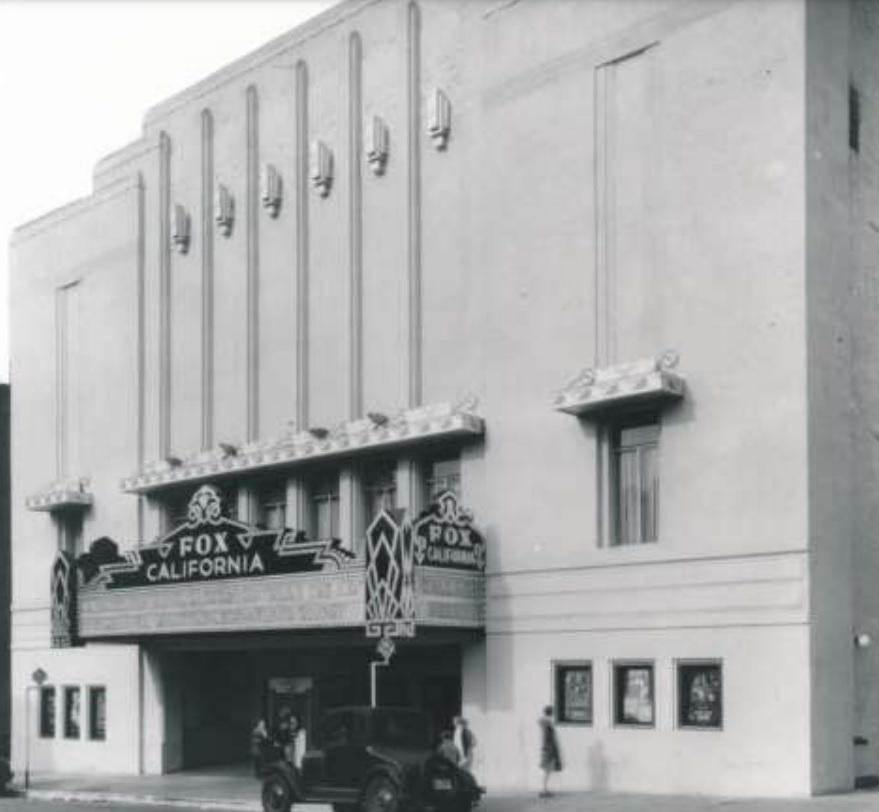BERKELEY — A theater could be returning to downtown Berkeley after the City Council denied an appeal of the California Theater redevelopment project, clearing a hurdle for developers to reopen the century-old entertainment space with hundreds of new housing units.
Gilbane Development Company plans to demolish most of the California Theatre on Kittredge Street, preserving the frontage of the historical theater but replacing the inside with a 24,273-square-foot live performance space 18 stories of housing.
“The California Theatre project is a beautiful reimagining of how we can preserve our historic building fabric downtown and still find space for new housing in our historic transit oriented downtown where it most belongs,” said Mark Rhoades, founder of Rhoades Planning Group, one of the firms behind the project, during the June 4 meeting.
The plans call for developing a theater space that can accommodate both movies and live shows with a roll-down theater screen, orchestra pit and other amenities. Of the 211 units of housing, 22 residences will be listed at the very-low-income level, being affordable to people making between 30 to 50 percent of area median income — between $54,500 and $102,800 depending on household size, according to the California Department of Housing and Community Development.
The proposal had cleared a series of reviews since it was introduced in October 2022, but hit a roadblock in February when East Bay Residents for Responsible Development, a coalition of crafts unions, submitted an appeal. The group disagreed with findings by the Zoning Adjustments Board and Landmarks Preservation Commission that the project didn’t need an environmental review because it was infill development.
Instead, the group argued the project would have significant impacts on air quality and historical resources and that the city relied on various mitigation measures to reach its finding that the project would have little to no environmental impact. They also said it did not align with the city’s general plan workforce policies because developers had not agreed to various workforce benefits.
Specifically, the group wanted the developer to voluntarily comply with the city’s Helping Achieve Responsible Development with Healthcare and Apprenticeship Training Standards, or HARD HATS. The project was deemed complete in 2022, before the HARD HATS ordinance took effect.
“Unfortunately, the current applicant hasn’t committed to workforce standards that will reflect these policies and this means we can expect a project with minimal, if any, apprenticeship opportunities for your residents, substandard, if any, healthcare for the workers that end up here and a significant lack of skilled labor who probably won’t be from this area,” said EJ Cire, a sheet metal worker and member of East Bay Residents for Responsible Development.
City staff disputed the group’s claims in a report to the council on June 4. They noted the defining historical characteristics of the venue were being preserved, the developer was already using various techniques to reduce environmental harms and agreed to more conditions on that issue, and the project adhered to the general plan.
Rhoades cautioned the council from forcing the developer to adhere to the HARD HATS ordinance or using union labor, noting the project is complex and will be costly. The theater part of the project is estimated to cost up to $25 million alone. Christian Cerria with Gilbane Development said the appeal has made securing funding a challenge but assured the council the project would be completed.
“We’ve already done everything we could possibly do to get a live performance theater in Berkeley in these economic times,” Cerria said. “We’re all in (on a theater) and you won’t get that from another developer.”
The council sided with the developers and denied the appeal, with Councilmember Cecilia Lunaparra recusing herself from the vote because she was on the Zoning Adjustment Board when this project was considered.
While they recognized the concerns raised by the union group and shared their disappointment in the lack of meetings between the developer and labor groups, councilmembers also shared excitement over a theater returning to downtown with the addition of housing. California Theatre closed in 2021 amid the COVID-19 pandemic after more than 100 years of operation. It initially opened in 1914 as a live entertainment venue and later operated as a move theater.
The Shattuck Cinemas, opened in 1988, shuttered soon after California Theatre in 2022, and the Regal UA Berkeley, a seven-screen theater first opened in the 1930s as the United Artists Theater, permanently closed its doors on Shattuck Avenue in 2023.
“This is an important project. There’s a lot of important history here,” Councilmember Terry Taplin said. “The city isn’t just its buildings or its industries. Cities are not just sites of capital and profits. The city is also its people.”


